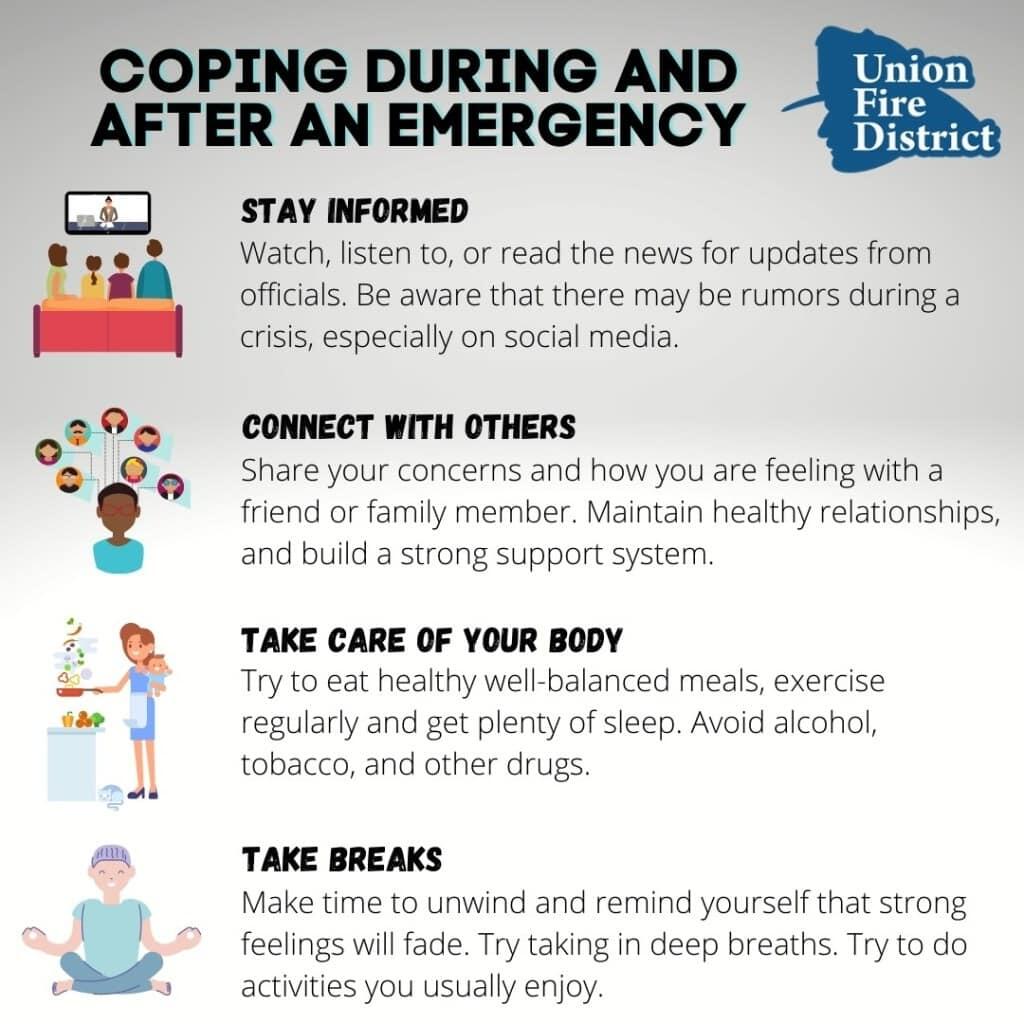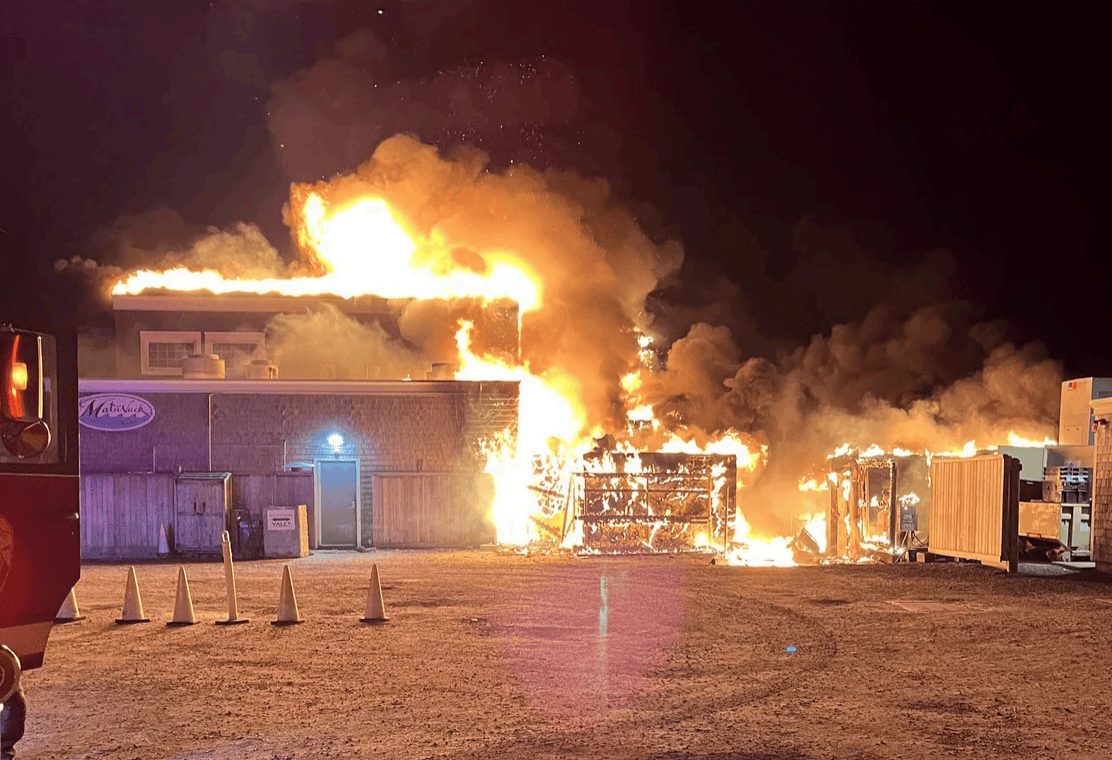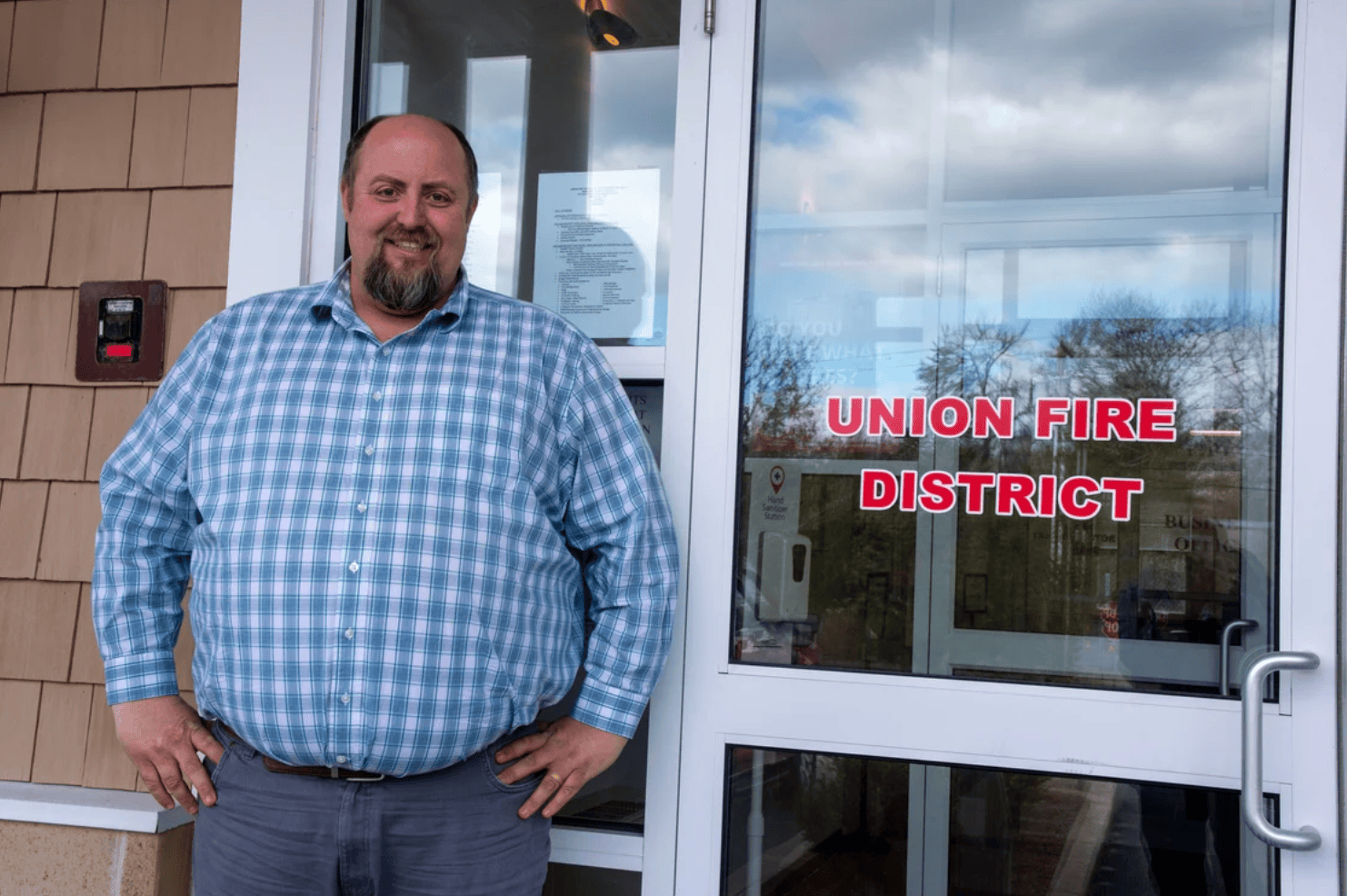Union Fire District of South Kingstown Shares Stress, Mental Health Resources for Coping During and After Disasters

September is National Emergency Preparedness Month
SOUTH KINGSTOWN — Chief Steven Pinch and the Union Fire District of South Kingstown would like to offer residents resources for stress and mental health for during and after a disaster during Emergency Preparedness Month.
September has been declared by Gov. Charlie Baker to be Emergency Preparedness Month. Residents are encouraged to use resources provided by the Massachusetts Emergency Management Agency (MEMA) to prepare themselves, their family, their property and their community for an emergency or natural disaster.
It is natural for people to experience stress, anxiety, depression and other emotions during and after emergencies. It is important to understand that everyone reacts differently to different situations and learning to cope with these feelings and getting help when needed will help you and your family recover from a disaster.
“Emergencies of any size or nature can be stressful, so it’s important that residents know how to take care of their mental and emotional health before, during and after an emergency,” Chief Pinch said. “Taking care of yourself by eating healthy and getting enough sleep, staying informed and simply talking with others can benefit your emotional health during difficult situations.”
The Union Fire District encourages residents to follow these tips provided by the Centers for Disease Control and Prevention (CDC):
Taking Care of Your Emotional Health
Taking care of your emotional health is important to help you think clearly during an emergency and make decisions that can help to protect yourself and your family.
- Take care of your body: Try to eat healthy well-balanced meals, exercise regularly and get plenty of sleep. Avoid alcohol, tobacco, and other drugs. Learn more about wellness strategies for mental health.
- Connect with others: Share your concerns and how you are feeling with a friend or family member. Maintain healthy relationships, and build a strong support system.
- Take breaks: Make time to unwind and remind yourself that strong feelings will fade. Try taking in deep breaths. Try to do activities you usually enjoy.
- Stay informed: When you feel that you are missing information, you may become more stressed or nervous. Watch, listen to, or read the news for updates from officials. Be aware that there may be rumors during a crisis, especially on social media. Always check your sources and turn to reliable sources of information such as local government authorities.
- Avoid too much exposure to news: Take breaks from watching, reading, or listening to news stories. It can be upsetting to hear about the crisis and see images repeatedly. Try to do enjoyable activities and return to normal life as much as possible and check for updates between breaks.
- Seek help when needed: If distress impacts activities of your daily life for several days or weeks, talk to a clergy member, counselor, or doctor, or contact the Substance Abuse and Mental Health Services Administration (SAMHSA) helpline at 1-800-985-5990.
Helping Children Cope with Emergencies
Damage to their home or a separation from friends, family and normal activities can create a great amount of stress and anxiety for children. Some children may react to emergencies right away, while others may show signs of difficulty much later. How a child reacts and the common signs of distress can vary according to the child’s age, previous experiences, and how the child typically copes with stress.
Before an Emergency
- Talk to your children so that they know you are prepared to keep them safe.
- Review safety plans before a disaster or emergency happens. Having a plan will increase your children’s confidence and help give them a sense of control.
During an Emergency
- Stay calm and reassure your children. Children react, in part, on what they see from the adults around them. When parents and caregivers deal with a disaster calmly and confidently, they can provide the best support for their children.
- Talk to children about what is happening in a way that they can understand. Keep it simple and appropriate for each child’s age.
- People can become more distressed if they see repeated images of a disaster in the media. Early on, consider limiting the amount of exposure you and your loved ones get to media coverage.
After an Emergency
- Provide children with opportunities to talk about what they went through or what they think about it. Encourage them to share concerns and ask questions.
- You can help your children feel a sense of control and manage their feelings by encouraging them to take action directly related to the disaster. For example, children can help others after a disaster, including volunteering to help community or family members in a safe environment. Children should NOT participate in disaster cleanup activities for health and safety reasons.
- It is difficult to predict how some children will respond to disasters and traumatic events. Because parents, teachers, and other adults see children in different situations, it is important for them to work together to share information about how each child is coping after a traumatic event.
Click here to learn more about common reactions in children and how to help children cope with disasters or emergencies.
Additional information and resources regarding mental health and stress during and after a disaster can be found on the World Health Organization, the U.S. Department of Health and Human Services or SAMHSA websites.

Recent Posts

Union Fire District of South Kingstown Battles 2-Alarm Fire at Matunuck Oyster Bar
May 20, 2025 - SOUTH KINGSTOWN — Chief Steven Pinch reports that the Union Fire District of South Kingstown responded to a two-alarm fire... Read More

Union Fire District of South Kingstown Welcomes New Administrator Brian Mahoney
April 10, 2025 - Brian Mahoney is the new Administrator for the Union Fire District of South Kingstown. Read More